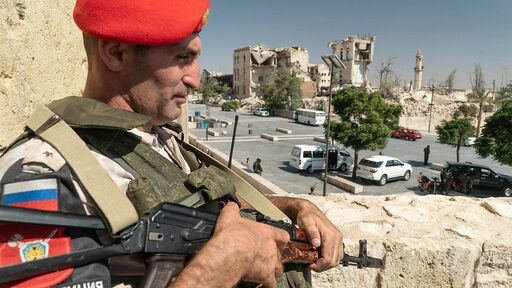On winning wars – Chris Miller in NYT:
‘There is no world leader today with a better track record when it comes to using military power than President Vladimir V. Putin of Russia. Whether against Georgia in 2008, Ukraine in 2014 or in Syria since 2015, the Russian military has repeatedly converted battlefield successes into political victories. Russia’s rearmament over the past decade and a half has been unmatched by a comparable increase in Western capabilities. So it is no surprise why Russia feels emboldened to use its military power while the West stands by.
Russia’s past three wars are textbook examples of how to use military force in limited ways to achieve political goals. The invasion of Georgia in 2008 lasted five days but forced that country into humiliating political concessions. In Ukraine in 2014, regular Russian military units were deployed at scale for a few weeks, but this proved enough to force Kyiv to sign a painful peace deal. When Russia intervened in Syria in 2015, some Western analysts predicted a disaster along the lines of the Soviet invasion of Afghanistan, which began in 1979 and ended, after a decade of quagmire, in retreat. Instead, Syria’s civil war served as a testing ground for Russia’s most advanced weaponry.’
(…)
‘Letting the military balance in Europe shift in Russia’s favor was a choice. The United States has itself partly to blame. Even after Russia’s first attacks on Ukraine in 2014, America’s reinforcements on the continent were only enough to slow the rate of improvement in Russia’s position. The Biden administration has presided over military spending cuts, after inflation is considered. America’s roughly $700 billion defense budget may look impressive, but Russia has the advantage of paying less for troops’ salaries and for domestically produced equipment. Adjusting for these differences, Russia’s defense budget has grown far more rapidly than America’s over the past two decades. European allies have even more to answer for: Germany and other European countries must wake up from the fantasy that peace is their birthright. They used to have serious fighting power. It is time to rebuild it.’
(…)
‘Mr. Putin could simply choose to destroy Ukraine and leave the West to pick up the pieces. Such a dismembered, dysfunctional Ukraine could well suit his interests. Russia’s recent wars have been carefully calculated and limited in cost. There’s no guarantee that this conflict won’t be, too.
The U.S. strategy of making public intelligence about Russia’s military buildup around Ukraine was clever, but Mr. Putin has called our bluff. It was once popular to mock the Russian president for his 19th-century worldview, but his use of military power to bolster Russia’s influence has worked in the 21st century. The West’s assumption that the arc of history naturally bends in its direction is looking naïve. So, too, is the decision to let our military advantage slip. Soft power and economic influence are fine capabilities to have, but they cannot stop Russian armor as it rolls toward Kyiv.’
Read the article here.
This is a good analysis of what happened. I defended Obama for largely staying out of Syria, and this giving Russia a chance to win the war there. And at the same time to stay out of the fight between Israel and Iran. (There are reasons why Ukraine has asked Israel to mediate between Russia and Ukraine.)
As for Germany having serious fighting power, yes in 1939.
Ukraine, 2022 might be Europe’s 9/11, but the thing with 9/11 was the response to it.
I don’t underestimate Putin, but there are always unintended consequences.
Peace is not a European birthright. It’s good that we suddenly are aware of this.
But anybody paying attention to European politics in the last couple of years could sense that this so-called birthright was becoming more and more feeble.
The containment of war is the most plausible way forward, based on the threat of mutual assured destruction, which is a far cry from the mild pacifism that’s one of the articles of faith of European bourgeosie.
